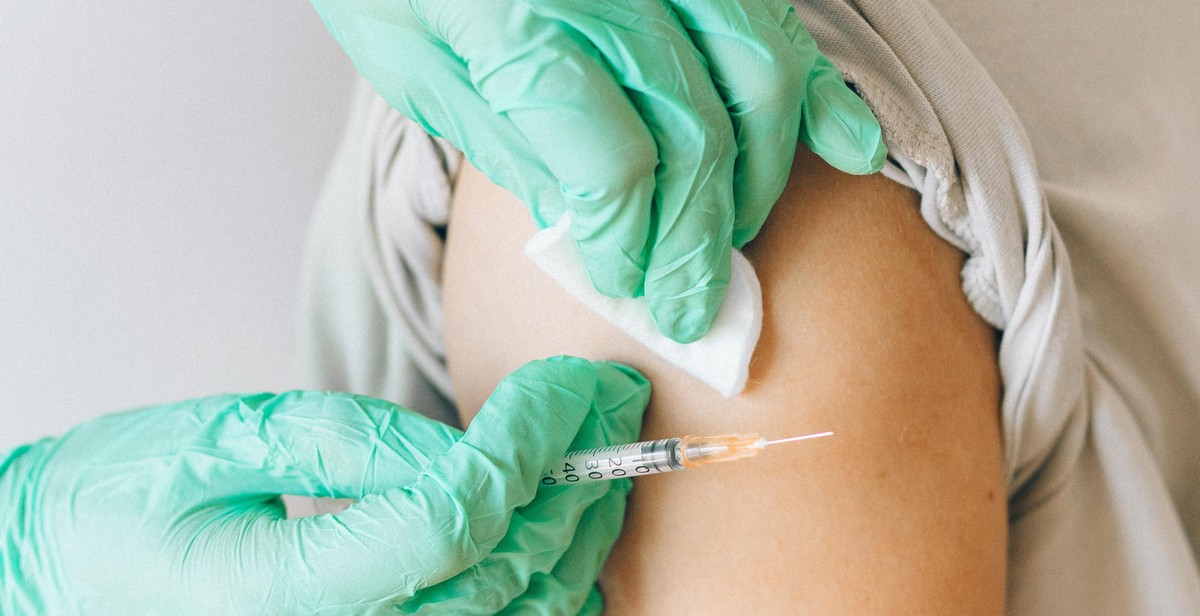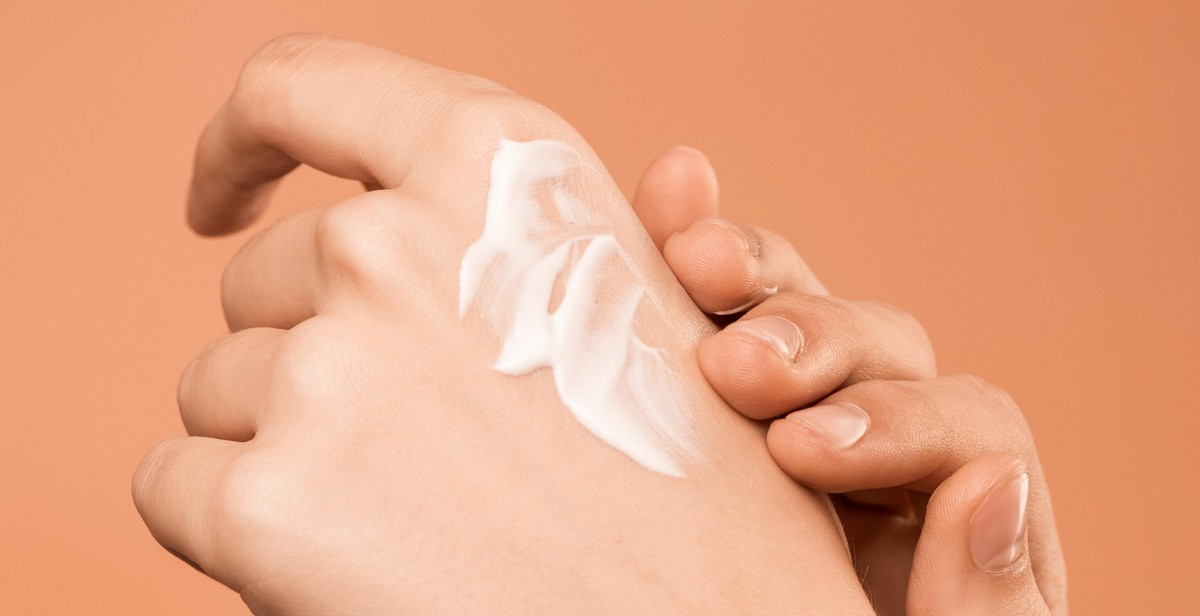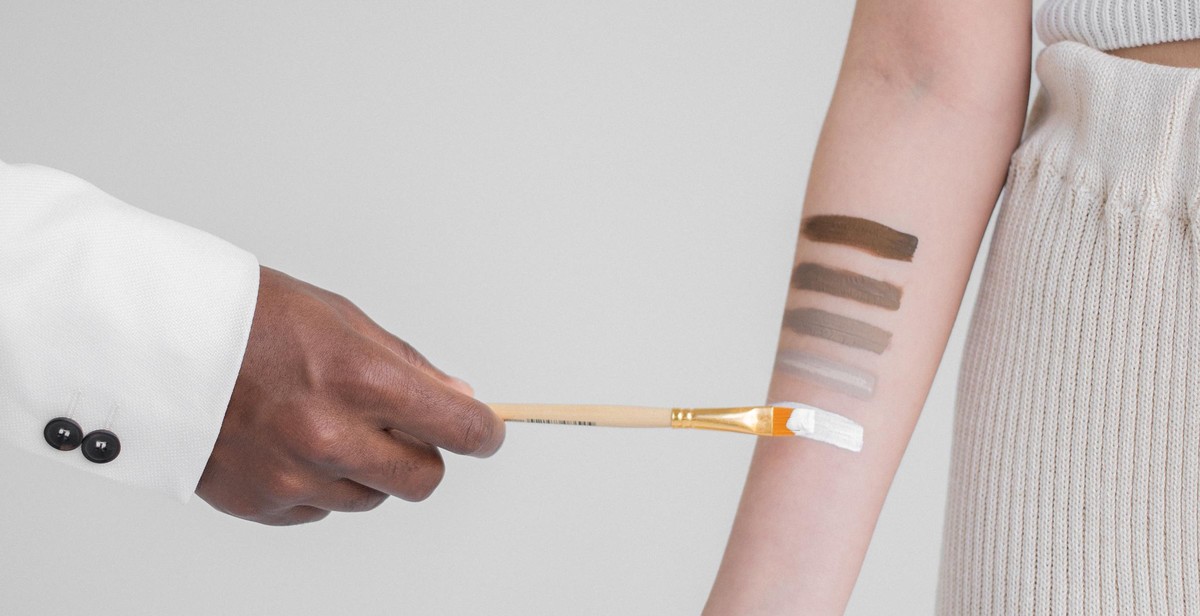Introduction: How to Even Out Skin Tone and Minimize Hyperpigmentation
Hyperpigmentation is a common skin condition that occurs when the skin produces excess melanin, resulting in dark patches or spots on the skin. This can be caused by a variety of factors, including sun exposure, hormonal changes, and genetics. While hyperpigmentation is not harmful, it can be a source of self-consciousness and can affect one’s self-esteem.
Fortunately, there are many ways to even out skin tone and minimize hyperpigmentation. In this article, we will explore some of the most effective methods for achieving a more even complexion.
The Importance of Sun Protection
One of the most important steps in preventing and minimizing hyperpigmentation is sun protection. UV rays can trigger the production of melanin, leading to dark spots and uneven skin tone. To prevent this, it is important to wear sunscreen with at least SPF 30 every day, even on cloudy days.
In addition to wearing sunscreen, it is also important to wear protective clothing, such as hats and long-sleeved shirts, and to seek shade during peak sun hours.
Topical Treatments for Hyperpigmentation
There are a variety of topical treatments that can help to even out skin tone and minimize hyperpigmentation. These include:
- Retinoids
- Hydroquinone
- Vitamin C
- Kojic acid
These ingredients work by inhibiting the production of melanin or by promoting cell turnover, which can help to reduce the appearance of dark spots.
Professional Treatments for Hyperpigmentation
In addition to topical treatments, there are also a variety of professional treatments that can help to even out skin tone and minimize hyperpigmentation. These include:
| Laser therapy | Chemical peels | Microneedling |
These treatments can be more effective than topical treatments, but they also come with a higher cost and some potential risks.
By following these tips and utilizing the right treatments, you can achieve a more even complexion and minimize the appearance of hyperpigmentation.
What is Hyperpigmentation?
Hyperpigmentation is a common skin condition in which patches of skin become darker than the surrounding skin due to the excess production of melanin. Melanin is the pigment that gives our skin its color. Hyperpigmentation can occur on any part of the body, but it is most commonly found on the face, neck, and hands.
Types of Hyperpigmentation
There are several types of hyperpigmentation, including:
- Sunspots: Also known as age spots or liver spots, sunspots are caused by prolonged exposure to the sun.
- Melasma: Melasma is a type of hyperpigmentation that is often seen in pregnant women and is caused by hormonal changes.
- Post-inflammatory hyperpigmentation: This type of hyperpigmentation is caused by skin inflammation, such as acne, eczema, or psoriasis.
Causes of Hyperpigmentation
Hyperpigmentation can be caused by a variety of factors, including:
- Exposure to the sun
- Hormonal changes
- Inflammation and skin injuries
- Genetics
Treatment and Prevention
Hyperpigmentation can be treated with a variety of topical creams, chemical peels, and laser treatments. However, prevention is key in avoiding hyperpigmentation. Wearing sunscreen with an SPF of at least 30 and avoiding prolonged exposure to the sun can help prevent hyperpigmentation caused by sun damage. Additionally, treating any underlying skin conditions, such as acne or eczema, can help prevent post-inflammatory hyperpigmentation.

Causes of Hyperpigmentation
Hyperpigmentation is a common skin condition that occurs when patches of skin become darker than the surrounding skin due to excess melanin production. There are various factors that can cause hyperpigmentation, including:
Sun Exposure
One of the most common causes of hyperpigmentation is overexposure to the sun. UV radiation from the sun triggers the production of melanin in the skin, which can result in dark spots and patches. This type of hyperpigmentation is commonly referred to as sunspots or age spots and is more prevalent in individuals with fair skin.
Hormonal Changes
Changes in hormone levels can also cause hyperpigmentation. Pregnant women may develop a condition called melasma, which results in dark patches on the face. Hormonal fluctuations during puberty or menopause can also cause hyperpigmentation.
Inflammation and Skin Trauma
Inflammation and skin trauma can also lead to hyperpigmentation. Acne, eczema, and psoriasis can all cause dark spots on the skin. In addition, skin injuries such as cuts, burns, and abrasions can also result in hyperpigmentation.
It is important to note that some individuals are more prone to hyperpigmentation than others. People with darker skin tones are more likely to experience hyperpigmentation due to their increased melanin production.

Prevention of Hyperpigmentation
Hyperpigmentation can be prevented through a combination of sun protection, a good skincare routine, and healthy lifestyle habits. Here are some tips to help prevent hyperpigmentation:
Sun Protection
The sun’s UV rays can cause hyperpigmentation, so it’s important to protect your skin from the sun. Here’s how:
- Apply a broad-spectrum sunscreen with an SPF of 30 or higher every day, even on cloudy days.
- Reapply sunscreen every two hours or immediately after swimming or sweating.
- Wear protective clothing, such as long-sleeved shirts and hats, when you’re outside.
- Avoid being outside during peak sun hours, which are typically from 10 a.m. to 4 p.m.
Skin Care Routine
A good skincare routine can help prevent hyperpigmentation by keeping your skin healthy and hydrated. Here’s what you can do:
- Cleanse your skin twice a day with a gentle cleanser.
- Exfoliate once or twice a week to remove dead skin cells.
- Use a vitamin C serum to help brighten your skin and prevent hyperpigmentation.
- Apply a moisturizer to keep your skin hydrated.
Healthy Lifestyle Habits
Your overall health can also affect your skin’s health. Here are some healthy lifestyle habits that can help prevent hyperpigmentation:
- Eat a healthy diet that’s rich in fruits and vegetables.
- Drink plenty of water to keep your skin hydrated.
- Avoid smoking, which can damage your skin and contribute to hyperpigmentation.
- Get enough sleep to help your skin repair and regenerate.

Treatment Options for Hyperpigmentation
Hyperpigmentation is a common skin condition that occurs due to the excess production of melanin in the skin. This can lead to dark spots, uneven skin tone, and other skin issues. Fortunately, there are several treatment options available to help minimize hyperpigmentation and even out skin tone. Below are some of the most effective treatments:
Topical Treatments
Topical treatments are a popular and effective way to treat hyperpigmentation. These treatments include creams, gels, and serums that contain ingredients like hydroquinone, retinoids, and kojic acid. These ingredients work by inhibiting the production of melanin in the skin, which can help to reduce the appearance of dark spots and even out skin tone.
- Hydroquinone: This is a topical skin lightening agent that works by inhibiting the production of melanin in the skin. It is one of the most effective treatments for hyperpigmentation.
- Retinoids: These are vitamin A derivatives that help to speed up cell turnover and promote the growth of new, healthy skin cells. They can also help to lighten dark spots and even out skin tone.
- Kojic acid: This is a natural skin lightener that is derived from mushrooms. It helps to inhibit the production of melanin in the skin.
Chemical Peels
Chemical peels are another popular treatment option for hyperpigmentation. These involve applying a solution to the skin that causes the top layer of skin to peel off, revealing smoother, brighter skin underneath. Chemical peels can be superficial, medium or deep and are done by a licensed dermatologist or aesthetician.
Laser Treatment
Laser treatment is a non-invasive procedure that uses intense pulsed light (IPL) to target and break up the excess melanin in the skin. This treatment can be very effective for treating hyperpigmentation, but it may require multiple sessions to achieve optimal results.
Microneedling
Microneedling is a minimally invasive procedure that involves using a device with tiny needles to create small punctures in the skin. This stimulates the production of collagen and elastin, which can help to reduce the appearance of hyperpigmentation and improve skin texture.
| Treatment Option | Pros | Cons |
|---|---|---|
| Topical Treatments | Effective, easy to use, can be done at home | May take longer to see results |
| Chemical Peels | Can be very effective, can be done in-office or at home | May cause redness, peeling, and sensitivity to sunlight |
| Laser Treatment | Non-invasive, can be very effective | May require multiple sessions, can be expensive |
| Microneedling | Stimulates collagen and elastin production, can improve skin texture | May cause redness and swelling, may require multiple sessions |

Home Remedies for Hyperpigmentation
Hyperpigmentation is a common skin condition that occurs when certain areas of the skin become darker than the surrounding skin. It can be caused by a variety of factors, including sun exposure, hormonal changes, and skin injuries. While there are many treatments available for hyperpigmentation, some people prefer to use natural remedies to even out their skin tone. Here are some of the most effective home remedies for hyperpigmentation:
Lemon Juice
Lemon juice is a natural skin lightener and can be used to reduce the appearance of hyperpigmentation. The citric acid in lemon juice helps to exfoliate the skin and remove dead skin cells, which can make the skin look brighter and more even. To use lemon juice for hyperpigmentation, simply apply fresh lemon juice to the affected areas of the skin and leave it on for 10-15 minutes before rinsing off with warm water. You can repeat this treatment once or twice a week for best results.
Aloe Vera
Aloe vera is a natural skin soother and can help to reduce inflammation and redness associated with hyperpigmentation. It also contains aloin, which has been shown to reduce the production of melanin in the skin. To use aloe vera for hyperpigmentation, simply apply fresh aloe vera gel to the affected areas of the skin and leave it on for 20-30 minutes before rinsing off with warm water. You can repeat this treatment once or twice a day for best results.
Turmeric
Turmeric is a natural anti-inflammatory and can help to reduce the appearance of hyperpigmentation. It contains curcumin, which has been shown to inhibit the production of melanin in the skin. To use turmeric for hyperpigmentation, mix 1 teaspoon of turmeric powder with 1 tablespoon of honey to form a paste. Apply the paste to the affected areas of the skin and leave it on for 20-30 minutes before rinsing off with warm water. You can repeat this treatment once or twice a week for best results.
Green Tea
Green tea is a natural antioxidant and can help to protect the skin from damage caused by free radicals. It also contains catechins, which have been shown to reduce the production of melanin in the skin. To use green tea for hyperpigmentation, brew a cup of green tea and allow it to cool. Apply the tea to the affected areas of the skin using a cotton ball and leave it on for 10-15 minutes before rinsing off with warm water. You can repeat this treatment once or twice a day for best results.
These home remedies for hyperpigmentation are effective and safe to use. However, it’s important to remember that natural remedies may take longer to show results than conventional treatments. It’s also important to protect your skin from further damage by wearing sunscreen and avoiding excessive sun exposure.

Conclusion
Evening out skin tone and minimizing hyperpigmentation is a common concern for many individuals. While there are various causes of hyperpigmentation, there are also several effective ways to treat and prevent it.
First, it’s important to protect your skin from the sun’s harmful UV rays.
Wearing sunscreen with at least SPF 30 and avoiding excessive sun exposure can help prevent further hyperpigmentation from occurring.
Second, incorporating products with skin-brightening ingredients into your skincare routine can help fade existing hyperpigmentation.
Look for products with ingredients such as vitamin C, niacinamide, and kojic acid. These ingredients work to inhibit melanin production and brighten the skin.
Third, consider professional treatments such as chemical peels or laser therapy.
These treatments can effectively target hyperpigmentation and even out skin tone. However, it’s important to consult with a dermatologist or skincare professional before undergoing any treatment.
- Protecting your skin from the sun
- Incorporating skin-brightening products into your routine
- Considering professional treatments
By following these tips and being consistent with your skincare routine, you can achieve a more even and brighter complexion. Remember to always be patient and gentle with your skin, and consult with a professional if you have any concerns.
